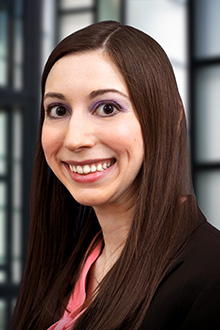The Court of Appeal, Second Appellate District, Division Three (Los Angeles), published its opinion in Cooper v. Takeda Pharmaceuticals America, Inc. (Aug. 13, 2015, B250163) __ Cal.App.4th __, analyzing the admissibility of complex scientific testimony on causation in a strict liability and negligent failure to warn case. (Slip opn., pp. 2-3.) The court held that “under the applicable substantial factor test, it is not necessary for a plaintiff to establish the negligence of the defendant as the proximate cause of injury with absolute certainty so as to exclude every other possible cause of a plaintiff’s illness, even if the expert’s opinion was reached by performance of a differential diagnosis.” (Id. at p. 25, italics in original.)
Plaintiffs, Jack and Nancy Cooper, sued the manufacturers of the prescription drug Actos®, which is used to treat type 2 diabetes mellitus. Plaintiffs alleged that Jack Cooper developed bladder cancer from ingesting the drug. (Slip opn., p. 2.) At trial, the court permitted the Coopers’ expert urologic oncologist, Dr. Smith, to testify that, based on his performance of a differential diagnosis, he believed Actos® was a substantial factor in causing Jack Cooper’s bladder cancer. (Ibid.) The court later ordered Dr. Smith’s testimony stricken, concluding that Dr. Smith’s testimony was speculative and lacked foundation. (Ibid.) According to the court, without a competent differential diagnosis based on Cooper’s history and medical condition that accounted for all potential causes, and ruled out each potential cause except Actos®, Dr. Smith’s specific causation opinion was unreliable. (Id. at p. 15.) Further, Dr. Smith did not rule out smoking as a potential cause of Mr. Cooper’s bladder cancer and did not consider Cooper’s history of chronic kidney disease or his various episodes of skin cancer. (Id. at p. 20.) Thus, the court granted the manufacturers’ motion for judgment notwithstanding the verdict. (Id.at pp. 2-3.)
The Court of Appeal reversed concluding that the trial court erred in striking the expert’s testimony. (Slip opn., p. 3.) The court explained that “by requiring that the expert rule out all other possible causes for Jack Cooper’s bladder cancer, even where there was no substantial evidence that other such causes might be relevant, the court exceeded the proper boundaries of its gatekeeping function in determining the admissibility of the complex scientific testimony.” (Ibid.) According to the court, “because California has rejected the notion that a plaintiff must definitively ‘exclude all ‘possibilities’ [citation]’ other than the defendant’s conduct or product as the cause of plaintiff’s harm, clearly an expert, in reaching a specific causation opinion, need not exclude all other possibilities before he or she can express an opinion that defendant’s conduct or product caused the plaintiff’s harm.” (Id. at pp. 27-28.) In other words, “[t]o be admissible, an expert physician’s testimony, even in the context of the physician’s performance of a differential diagnosis, need not rule out the applicability of all other possible causes of disease where there is no substantial evidence that other known risk factors for bladder cancer acted on Cooper and provided an alternative explanation for his disease.” (Id. at p. 35.) Finally, the court concluded that the evidence supported giving a jury instruction on multiple causation. (Id. at pp. 3, 46-48.)
We thought you should be aware of this opinion since it contains a good discussion of the acceptable bounds of expert testimony regarding causation as well as the trial court’s gate keeping function of excluding unreliable expert testimony.
